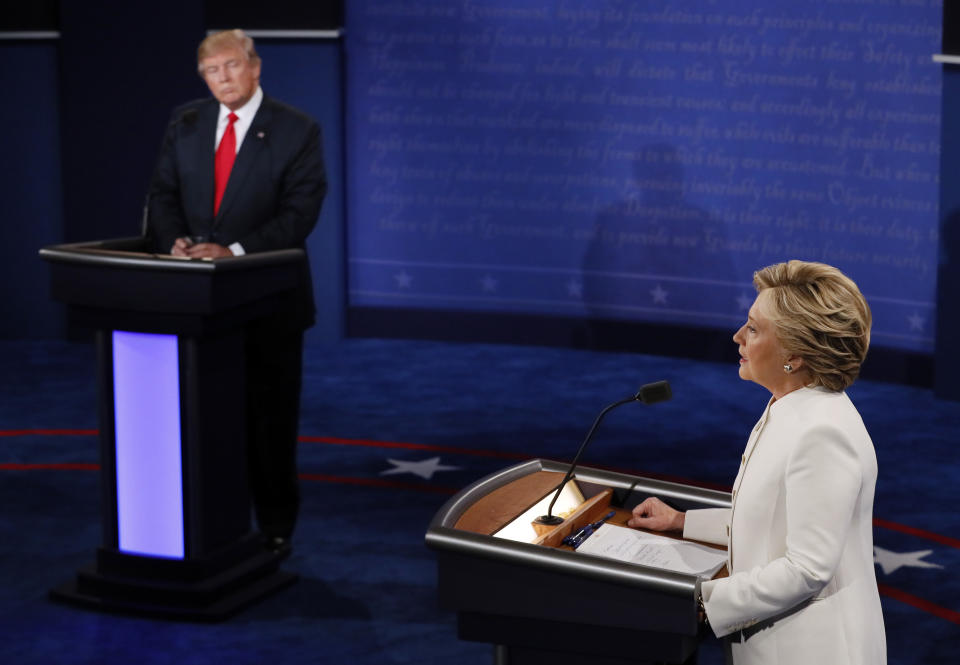How pollsters plan to get the 2020 election right
Will the 2020 presidential polls be as mistaken as they were in 2016? Pollsters certainly hope not, and they’re changing a few things to assure more credible insights this time around.
Most polls predicted a Hillary Clinton victory in the 2016 presidential election, with a popular-vote margin of 1 to 7 percentage points over Donald Trump. The polls were generally correct about the popular vote, which Clinton won by two points. But they got several swing states wrong, failing to predict surprise Trump victories that put him over the top in the electoral college and helped him win the presidency.
“Most of the national polls were fine,” Lee Miringoff, Director of the Marist Institute for Public Opinion, explains in the latest episode of the Yahoo Finance Electionomics podcast. “A lot of the problem with the state polls was that they were not in the right states. There was a sense that Hillary Clinton is going to run up the score and let's look at some other places. So we didn't get a sense of what was going on in Pennsylvania, Michigan, and Wisconsin, which turned out to be critical.”
Miringoff pins the problem in 2016 not so much on polls themselves, but on election models built on polling data that put numerical odds on a Clinton victory. Data site FiveThirtyEight gave Clinton a 71% chance of winning, for instance. The New York Times gave Clinton 85% odds. HuffPost gave Clinton a 98% chance of winning. “The people who had the biggest influence on the perception that Hillary Clinton's going to win were these prognosticators,” Miringoff says. “They didn't point out that if there's an 80% chance she was going to win, there's still a 20% chance that she was going to lose. And some of that was missing in the state by state analysis.”
[Check out other episodes of the Electionomics podcast.]

After three years of painful post-mortem, pollsters think a few unique factors distorted results in 2016. Undecided voters who made up their minds in the last few days of the campaign—or even in the voting booth—went largely for Trump. They may have been influenced by news surrounding a letter then-FBI Director James Comey sent to Congress 11 days before the election, reviving controversy about Clinton’s use of a private email server when she was Secretary of State. Statewide polls would not have caught the late shift in voter sentiment unless conducted right before Election Day.
Polls also may have underrepresented the influence of less-educated voters who turned out for Trump in large numbers. Many polls have since been adjusted to give more weight to these voters, but Miringoff thinks that may be an insufficient fix. “To me, that’s fighting the last war,” he says. Also needed: Better weighting to account for the impact of rural voters.
For now, 2020 polls show Democrat Joe Biden with a lead over Trump that averages 5 percentage points in the RealClearPolitics composite of national polls. Biden leads in most swing state polls, as well. Are those numbers accurate? Trump supporters doubt it, citing the X Factors polls failed to detect in 2016. Many Biden supporters are nervous, as well, fearful that Biden’s margin is illusory or will simply disappear.
If there’s one thing for sure, it’s that pollsters will be watching more closely in 2020 for late-breaking changes. “if we learned anything in 2016,” Miringoff says, “it's that things are subject to dramatic upheaval and change.”
Rick Newman is the author of four books, including “Rebounders: How Winners Pivot from Setback to Success.” Follow him on Twitter: @rickjnewman. Confidential tip line: [email protected]. Encrypted communication available. Click here to get Rick’s stories by email.
Read more:
Get the latest financial and business news from Yahoo Finance
Follow Yahoo Finance on Twitter, Facebook, Instagram, Flipboard, SmartNews, LinkedIn, YouTube, and reddit.
